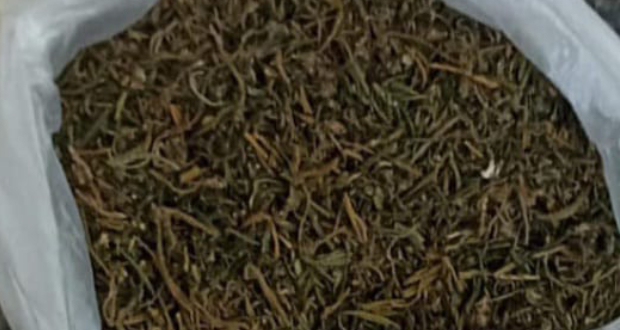Publicité
The Sustainable Operating System Initiative: towards Business Sustainability and Resilience
Par
Partager cet article
The Sustainable Operating System Initiative: towards Business Sustainability and Resilience

In my article “THE NEED TO RETHINK ORGANIZATIONS” (Business Magazine 15-21 Jul 2020), I advocated the need for business leaders to rethink their Organizations, and what they ought to do to survive and to grow in today’s economy disrupted by the COVID-19 pandemic. In fact, Organizations need to build their Resilience by being more effective and more productive, by being more Sustainable – the development of an Organization can and must be Sustainable. I moreover emphasized that ‘without a framework to examine the functioning of the Organization as a whole in relation to the dynamic changes in their environment, and to the factors that influence people behavior (and how) within the System’, there cannot be long-term and sustainable improvements. This framework can practically be realized by the adoption and deployment of The Sustainable Operating System Initiative (SOSI™), which, in effect, is a Strategic Positioning tool.
An Organization is a dynamic System made up of several inter-connected sub-systems. The Organization itself is part of a larger System (its local environment). And all such larger Systems are inter-related in the global eco-system. Hence, in order not to negatively impact the Environment and Society as a whole, Organizations must have an approach which sustainably integrates their sub-systems within the environments in which they operate; this approach need to be Holistic and Environment-centric. Organizations are thus, more than ever, expected to have on-board their Sustainability Initiatives (SI), in one form or another. In Mauritius, the larger Organizations are mostly Sustainability-conscious (to various degrees), and have their in-house (Sustainability/Go-Green) initiatives already. But in general, the smaller Organizations are yet to formally embark on their Sustainability journey, probably due to a lack of awareness and/or know-how, amongst others. But to many, the cost of such an initiative is the main deterrent, coupled with the (wrong) perception that tangible benefits will only be seen in the long-term. SOSI™, however, has a forthright functional and coherent approach towards Business Sustainability and Resilience, with rather quick ensuing results.
SOSI™ takes its roots from Systems Theory and (macro) Systems Re-engineering, together with Industrial Engineering, and Operations Research techniques for Optimization. Unlike Sustainable Operations Management which requires quite elaborate competitive strategies, in-depth modelling and analysis techniques for performance measures and metrics, SOSI™ tactically creates the Systems Perspective which provides the framework to improve the functioning of the Organization as a whole. This perspective highlights the Organization’s Constraints and Limits to Growth, which can thus be addressed. It emphasizes the Behaviors, Interactions & Patterns (BIP) of and between the sub-systems of the Organization, rather than the processes themselves. It looks at underlying principles rather than events to find Leverages (areas of highest leverages often being the least obvious, and small leveraged changes in one area often producing big results in other inter-connected parts of the Organization) while:
- Integrating & Synchronizing operations/processes for improved Operational Effectiveness, Productivity Gains, Reduction of Waste & WIP
- Making operations Leaner & Cleaner to improve Value, Capability, Availability & Flexibility (VCAF)
- Revealing hidden Costs of Quality (Complaints, Rework, Failures, Attrition)
- Tackling Recurrent/Systemic problems for long-term solutions
SOSI™ focuses on re-engineering the Organization’s sub-systems like Supply Chain (raw materials sourcing, storage, supplier assessment), Production (manufacturing, packing, shipping), Logistics (deliveries, distribution, transportation), and Customer Service (satisfaction, complaints, value), in an integrated way to bring about incremental gains in Operational Effectiveness and Productivity, while tackling problems like high process waste & downtime, bottlenecks, failures & rework, big variations, and their associated costs (visible & hidden), and creating a Sustainable Value Differential Output (SVDO) – augmenting the Organization’s Output from a mere Core or a Quality or a Branded Product/Service ( Figure 1) – thus giving it a definite Competitive Advantage. It also addresses systemic failures which cause recurring problems (by tackling the cause of the problems, not their symptoms). With SOSI™, therefore, the whole Operating System of an Organization is re-engineered in order to deliver Output – Goods / Services – more effectively and more productively, while using the resources at its disposal more efficiently, and with its impact on the environment as a central consideration. In doing so, the Organization makes noticeable and measurable savings in its Inputs – Time, Energy, Resources, Money (TERM), hence reducing its Carbon Footprint.

The benefits of SOSI™ are tangible and measureable. These include: improved Operational Effectiveness, Productivity gains, better Use of Resources, reduced Waste, less Work-in-progress & Downtime, shortened Cycle Time, and reduction in amount of Fossil Fuel burnt. Other less tangible benefits include: having an enhanced Image (products and/or services being more sustainable), improving Customer Satisfaction & Retention, attracting more Sustainability-conscious Customers, becoming more Competitive, and improving the Quality of Life of employees. These benefits, when recorded and publicized, will not only close the Organization’s Sustainability Gap (the gap between expectations and perception of its Sustainability Rating), but will eventually create the Sustainable Value Differential to outperform rivals ( Figure 2).

SOSI™ provides Organizations with an immediate stepping stone to kick-start their Sustainability journey, with consequent positive impact on their Carbon Footprints. This initiative hence targets any Organization, and being relatively less expensive to deploy, can be particularly popular with Small & Medium Enterprises (SMEs). Whether the Organization is a manufacturing concern with an industrial or a job-shop set-up, or a service-delivery company, SOSI™ can certainly turn it into a more Performing and Sustainable Organization, operating more optimally and becoming more eco-conscious and eco-friendly. Any incremental improvement achieved in the Organization’s operations and inter-connected processes will impact positively on its Carbon Footprint through the reduction of waste, cycle time, (fossil) energy consumed, etc. Figure 3 diagrammatically depicts the integrated approach of SOSI™ in the Organization. Interestingly, this approach can be deployed in phases, and eventually, over again so that the Organization keeps improving incrementally!

Understanding and protecting the interdependent relationships between Production (Economy), People (Society) and the Planet (Environment) is today of utmost importance: Economic Activity without negative impact on the Environment and the Community at large is critical for survival. By becoming more Sustainable and Eco-friendlier, an Organization also becomes more Resilient as a result of better and more judicious utilization of its TERM. SOSI™ should prove to be a more appropriate SI for SMEs to start making a meaningful difference today. It is also suitable for larger businesses which would prefer a more practical SI deployment. Business leaders interested to know more about SOSI™ and its deployment in their Organizations are welcome to contact its initiator/author of this article.
Publicité
Les plus récents






